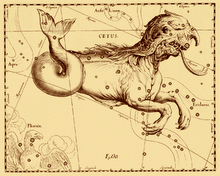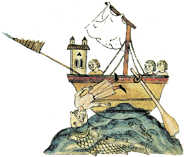Yesterday, I arrived in the city at mid-day through Portable Authority. I had a good amount of time to get from mid-town to the nether regions of the Upper Eastside (59th and Lexington), so I glanced around the Hudson Newsstand. Imagine my childlike delight when I saw the latest Spin Magazine and My Chemical Romance gracing its cover. I guess I stood there for about a quarter of a minute before I did my compulsive purchase for the morning. I don't know what it is about New York, but I am constantly picking up magazines, gum, newspapers and toiletries. It is something about the urban landscape I guess. Years ago a cat told me that the tarot card that corresponds to New York City is the Hermit card because people live in such isolation. I guess that is why I feel so comfortable in the city, and at the same time why it is a dangerous place, I have a tendency towards withdrawal, I stay with my thoughts more than most people suspect.
In that spirit my Spin purchase was part of my own private anthropological study. I have not picked up a Vibe, Spin or Rolling Stone in ages. I used to work in the music writers' world for a split second and wanted to desperately be a part of it; but now it just seems to be a dream deferred, a sour little minutia from my past. I thumb through a music magazine at the newsstands now and then, reading it like an old sixth grade love letter. I feel transported in that same sense, rapidly perusing the masthead for a name I can recall, feeling a tingle of former infatuation, then discarding the rag after the unfamiliar names ring an atonal tone in my heart, an emotional discord that is slightly out of pitch – “Ah, the disappointment. What legendary writing could have happened if Vibe/Spin/Rolling Stone had only done such and such”. . . i.e., “If only they had kept me and my friends who are all doing wonderful things anyway.” Now, even the majority of the founding saints and villains of that former Biggie/Tupac mega death hip-hop monthly libretto have been axed.
So for $3.99 I made a commitment and started to read what I could of Spin. The brevity of the the articles was caustic. I felt as if I had missed something really important in each one because they were not written as meticulously structured exposés describing the time and place of the interview nor the inner tinkerings of our rock gods. Unfortunately, the articles were written as short data entries to be digested with little saliva – their dietary nutrients molecularly compact. Granted the cynical tongue-in-check language adds flavor, but everything tasted the same.
Back in 1993 when I was an intern at Vibe I remember language pouring out of every office. On a typical day I saw Hilton Als working on the Chaka Khan piece, Diane Cardwell blasting Janice Joplin and everyone talking about the Fugee promotional package. I got a green long sleeve Fugee T-shirt that I wore like my lion’s skin. Vibe, as Spin was 10 or 20 years ago, was thicker at its inaugural. Even Vibe's 5th anniversary issue, in which one of my pieces appeared, was thicker. Granted, much of it was ads, but other bits of it included Scott Poulson Bryant, Michael Gonzalez, Greg Tate and Joan Morgan. But in those first five years, there were several scandals and turnovers, and even Alan Light found his way lighfootedly from Vibe to Spin, maybe he was even a joint ruler of them both at one time, if my memory serves me correctly.
I do remember my interview at Spin after graduating from my beloved HBCU. I was dressed in a suit that was too big, and everyone at the entrance way to the interview was totally grunged out. I was settling into the New York area from the South before Eryka Badu and Master P made it cool. My first impression was that the Mid-Atlantic petit bourgeoisie air, New England secondary school polish, Ivy League feminism and Boston white boy college sensibility clashed against my New Negro haberdashery. The interviewer was very nice. He told me they were not paying very much, but he would keep me in mind. In fact he was really sweet in some memorable way -- just a T-shirt and jeans. He might have been pushing thirty, but his honesty rang so true to me in some older brother type of way. He later died of a drug overdose while covering one of the wars in Eastern Europe. It is a shame and embarrassing that both his name and the exact conflict escape me.
And so, I landed at Vibe instead and worked there a semester. Then after that it was graduate school, Ghana, malaria, diabetes, Israel, Master's thesis and a switch to book publishing, in that order. All that time the idea of being a music journalist, or more specifically a pop critic, re-shaped and morphed until I ended somewhere totally different. You see the problem starts with the timeliness of periodicals and the fact that they could be at the point of closing an issue anywhere between 2 and 3 months ahead of what is actually on the newsstands. Books take more time. There is more lead way. You are an elephant, your heart does not race at the rate of a mosquito. So I asked God to turn me into an elephant.
II
The February 2007 issue of Spin is a special issue entitled "The State of Music". It is funny that the way the magazine's layout is done betrays the problems or rather the shift of my generation being in the vanguard, to us becoming elephants, if not mastodons, of the old music industry. Again, I found myself in the dark. This declaration of the death of the album is new to me, but then again I don't really buy new music. Even My Chemical Romance, which is the first new rock thing I have actively participated in since the turn of the millennium, has not made me run to the store. Also the economic reasons behind the death of the album seem to harbor more credence among the pop literati than what Nelson George talked about in Hip-Hop America a decade ago. In it George points out that the hip-hop generation shows no loyalty, the fans simply follow a succession of artist of which few accumulate a true following. It is just one single after another, one anthem after another, one player playing the game after another. And for those that make it to legendary status, so many in the hip-hop industry opt out like Lauryn Hill, or find their heads served back to them on a platter like the current shunning of Jay Z. And, as Spin points out so directly, with beat driven hits saturating the market, the loss of melody is palpable. With these factors, plus the power of the consumer to make a line item veto concerning the selection of tunes for purchase, no wonder things are changing.
We are in the age where you can just download the single and incorporate it into your i-Pod generated sound track for your own personalized march through the subzero streets of New York City or while gliding on your treadmill. Take Beyoncé's “Check On It”, which was so hot I drove for miles from Nashville to Atlanta alternating between that joint and Labelle’s Moonshadow album. And maybe, with that image, we have the struggle between this new hotness that you consume like cafeteria jell-o and a 4 course Wonka stick of gum that delightfully turns you into a blueberry full of soul juice and conceptual nectar -- nectars unripe with heartache, ripe with social calls of rectification, or overripe with personal triumph -- Virgin, Mother, Crone (Madonna ?) -- Knave, Knight, Emblem (Prince). Our Marys, our Princes and our Nirvanas mystify us and stitch us up in a larger overarching view of our lives, not the immediate snare drum licks that accent our staccato on concrete. After looking through this issue of Spin I realized that I am getting old, I am an elephant, I do not own an i-Pod, I cringe at the thought of becoming so wrapped up in Maria Bethânia that I could be hit by a truck crossing at 60th and Lexington where the traffic bottlenecks and there is always one delivery truck gunning it on red to make a left turn. Always!
III
And so after reading that Perry Farrell has been in the business for 20 years, that Courtney Love is working on “something” and feeling famished after a meatless 400 word burp about the Swedish music scene, I sunk my teeth into the My Chemical Romance article. And there it was, the great divide in music history, these cats are nothing but the Smashing Pumpkins in drag, but from what I can tell, we need the Smashing Pumpkins in drag today . . . and I could not agree more. Timothy Gunatilaka's article basically focuses on how these guys are needed by many young people today, and it seems that the band has experienced this truth in their performances. The article’s layout is ingenious; the text is littered with little green blurbs from My Chemical Romance's Myspace page, ImnotOkay.net and MyChemicalRomanceForum.com. Most are tinged with the salvational salutations to the band for creating music that intervened during the time of their planned (or spontaneous) suicides. Of course as a teacher I got a funny feeling in my stomach, a feeling that I have had students in that place, and I have witnessed at least one intervention collapse, not resulting in death thank God, but institutionalization. One person sent a message bluntly stating ". . . You save lives . . ."
So, is this the state of the album? Are my little generation Y'ers and Z'ers missing what I devoured with great delight, what my fellow high school and college classmates picked without asking? What would life have meant for my freshman roommate who listened to Tom Petty's "Free Falling" every night; for my single white female best friend (to the raised eyebrows of both our parents) if REM's "This Is The End Of The World As We Know It" and everything after didn't exist; for me if Prince's double album Sign of the Times (that I listened to for 3 years straight in high school to the chagrin of girl named Deborah who called me strange for 4 years straight) was never produced. This is the landscape now. Napster and i-Tunes have nipped away the security of young Americans according to this hypothesis if you introduce a little anti-matter to it. They have no Dick Clark to breast feed them, only Paula Abdul's Novocaine tit to drip feed them celebreality. Who knew that the record store was the teenager’s Temple of Delphi, but now the barbarians are at the gate in the true Harold Bloom sense of the old reactionary adage. The American record store’s death throws have turned to convulsions. The tower has literally collapsed, and according to friends and reports, the music industry may evaporate as if zapped by a sonic death wave, a wrong chord reverberating from a Queen LP played backwards.
Miss Industry is a behemoth made of bricks and mortar. Who would have thought, that books would prove to be more nimble (for now at least) in the cyber age? In 2000 the publishing industry asked collectively, what was going to happen to the book, but that was so naive. Shakespeare is unmovable, written language has been around for millennia and moveable type for centuries. Records didn't even close out the century, CD's survived for only two decades. Nothing is permanent.
So maybe I am a nimble little elephant with twinkle toes (many would say that already for varying reasons). I have a Myspace page and on it I have a community of musicians, writers, friends and perverts that share my taste in music, literature, politics and perversions. I do not feel so alone, in fact I am indulging my senses with old G-Force footage and Gothic styles as we speak. Myspace has given me a world to express myself in ways I did not have years ago. A thought comes to my head and I will research it and add it to my page, giving a picture of myself, with close self-editing of course, for not all of me can fit on one page. And in this world where the visual and auditory are supple and correct by simply cutting and pasting information in HTML, how are young people learning to receive information? Hell, how are they dealing with relationships, because as much as I love my virtual communal nest, they are not really friends in the brick and mortar sense of the word.
But back to music rags . . .
Beyond the market forces that force these thick mini-catalogs of hip-hop and rock and roll to reduce their page sizes, are there issues concerning what is music journalism and what is not? I believe that there are, but I can not address them now, I have only bought one music magazine in the past 2 years. My anthropological research into the manhandling of the music and its musing rags will need further investigation.
IV
When I was working at Reader's Digest in Germany during the winter of 2003, there was a music marketing manager from Spain who moved from Barcelona in the 1970's to southern Germany and fell in love with Freiburg. He stayed and had a family. I remember my seminars with the editorial and marketing teams were always really pleasant when he was around. He talked about playing music constantly and wanted me to teach him how to stop rolling his r's so pronouncedly, as well as working on other consonants that escaped his grasp with each English utterance.
"It is so sad Bill," the marketing manager confided in me one day, "the way music accompanied my life and your life is not the way for my children and will not be that way for yours."
I stood there and looked at him. I did not know it then for sure, but somewhere in my subconscious I had received the news that the album was ill. I wonder what that means for the music journalist in light of all that has happened concerning record company/media mergers, bottom-lines and the musical interest of young people unable to find the ballad that gets them through their first kiss, break-up, heartache, separations, growing aparts and finally the death of the relationship all together. For a lucky few the companionship will blossom, for others the isolation in their lives may have more sinister sources than puppy love. And what about us, the over 30 demographic so despised by notions of fashion (except for the gay demographic), are we left without albums also?
“Hey!, Mr. DJ I confess. I have been through some traumatic shit and I need a hero, but 10,000 Maniacs will do me just fine."







2 comments:
A really thoughtful entry, Bill. Don't forget that the music industry signed its own death warrant when it began going for quick hits instead of cultivating artists for the long haul, and then fought the downloading trends tooth and nail to the point that now anyone who can avoids paying $18/CD; it's insane how much money I/you/folks used to spend on this technology, all the time and energy we devoted to it, and how little it ultimately was worth in the scheme of things. The devotion outlasted the music's value, at least in a profound sociopolitical and metaphysical sense. Now the musicians are increasingly having to hustle, it's no longer a mega payday as it once was, and the industry, which is sick and suffering, doesn't know what hit it. What journalism is adequate to such a situation, a state? Als writes about a boutique industry these days, the Broadway (and New York) theater world; Scott Poulson-Bryant published his magnum opus on the d*ck, where are the other folks who were mapping out the discourse for this field of extraordinary possibilities? Have they succumbed to boredom or toxic nostalgia? That ain't where it's at, no there's there and there hasn't been for a while. Instead, just traces--and you're reading the ghostly mappings. As Baraka said, apropos of something quite different, the future's a long time gone.
Thanks for the response. I have been rolling it around in my head for the past couple of days, thinking about where I should go with it. There are all these pieces of unthreaded twine that I keep following in my brain:
(1) The demise of the New York avant garde in the 90's, followed by the exodus of the artistic establishment due to rents.
(2) As you mentioned, the death of a nuturing young Clive Davis like sky father to help polish the stars, or at least water their roots. The industry is not longer vested in artists the same way.
(3) Bookstores and publishers are mimicking this same business model, thinking of books like a piece of cinema . . .if your first print run does not sale "so much" in the first printing, then you are given the shaft. It is hard to gain a readership that way.
(4) What is the written legacy of hip-hop and rock journalism? Greg Tate still holds down hip-hop contemplation, but I can think of no others. Nelson George has just directed a film for HBO. And that is about it. I just want a more fortified and sanctified view of what has happened over the last 20 years. OK. Let's say 14, I am only a baby.
I have been thinking about that world I lived in and how to write about it. This entry might be the first part of that process. It has been resting on my heart for sometime, but since the Source trials and bankruptcy have come and gone, I can see where the story is finally going to end. I could not see it before. Though lay-offs at Urban Box Office and other Negro-portals of the late 90's did foreshadow the fiscal uncertainty of many of my fellow writers that walked into Vibe and other places at he same time.
But damn, what a slow train wreck this has been. You witnessed it too, at least that piece of twine connected to NYC in the 90's I know for sure.
Post a Comment